- Home
- Brian Lumley
Blood Brothers Page 35
Blood Brothers Read online
Page 35
A crossbow thrummed and its bolt took Vratza close to the heart, burying itself in his torn and bloody chest until only the flight protruded. He jerked massively and coughed up blood, then sucked at the air—and continued to speak! And with his voice rising to a shriek, and finally a gale of mad laughter, he said:
“Boy, do you see this shaft in me, how it tears me? So she is torn, even now. And Canker’s shaft is just as vicious. Be sure he’ll fuck her heart out! Oh—ha, ha, haaaaa!”
Nathan staggered to and fro, his face pale as a papery wasp’s nest, with dark punched holes for eyes and mouth. And as a second bolt joined the first (though still not on target, for the men were shooting in haste to shut Vratza up, and so missing their aim), the youth whispered:
“And now … now I want you to die.”
Kirk Lisescu granted Nathan’s wish. Twin blasts, coming in quick succession, turned the vampire’s head to pulp as silver shot removed any last trace of a face.
Blood flew in gouts and splashes; booming echoes came back thunderously, first from the stockade’s walls, then from the hills; Lardis dragged Nathan roughly aside, out of the red rain. “You don’t want that on you,” he gasped. “What? Even the air that bastard breathed is tainted!”
Again Nathan shook him off, then staggered away into the night to be sick. Once, hearing shouting, he looked back and saw the cross and the thing upon it as a black silhouette against the glow of the fires—but the silhouette was hideously mobile!
Vratza Wransthrall had told how he was close to becoming Wamphyri, and he’d been right. Undead metamorphic flesh formed nests of writhing tentacles which sprang from his guts, chest, and all the massive parts of his body. Whipping and vibrating, they lashed themselves—lashed him—to the cross’s upright and horizontal bar. But the men had lassoed both arms of the cross and were hauling on it furiously, until it leaned over and toppled into the fire-pit.
Nathan heard the hiss, saw white smoke or steam rising, which he knew would soon turn black. Lardis had it right: in an hour, Vratza would be reduced to a stench and a final puff of smoke. Nothing more would remain of him—
— Except, of course, that monstrous picture which he’d painted in Nathan’s head. And that might very well last for a lifetime.
Meanwhile, Nathan’s stomach in its entirety desired to be out of him …
Afterwards:
Nathan went back to his mother’s house and dug in the ruins. He wasn’t satisfied that the searchers had done everything in their power. And in order to be absolutely certain, when he was finished with the house he laid bare the floor of the barn. And found nothing, not even a bloodstain.
He stood on the spot where he’d last seen Misha in the embrace of a snarling red-eyed fiend, hung his head, gritted his teeth, clenched his fists. But he didn’t cry. No, he told himself, I’ll shed no tears until I’ve shed his blood, taken his shaggy head, smelled the stench of his burning hide and seen his last black trace go drifting on the wind!
It was his Szgany vow.
He slept again, and before the dawn went to the Zanesti house where it stood undamaged. Misha’s father and surviving brother were there, pale as ghosts, sitting in silence. Before, they hadn’t much cared for Nathan; now, her father cradled his head and cried on it. But Nathan wouldn’t. And Misha’s brother (perhaps thoughtlessly, but surely he could be forgiven) said, “She never knew a man; she’d been with no one; she wasn’t even whole. Once, I would have killed the man who looked at her like that! And now I would kiss him—because Misha had loved him.” And he’d looked at Nathan, perhaps hopefully.
But the youth could only shake his head and say, “Always remember, you have each other.” Which, while he’d not intended it that way, caused them to see that Nathan had no one. Before they could say anything he left them and went looking for Lardis, only to discover that the old Lidesci had experienced the selfsame doubts and returned to his ruined cabin on the knoll.
Nathan joined him there, where Lardis had been at work again in the wreckage. He came across him sitting in what had been his garden, with eyes as vacant as his soul, staring south, waiting for the first glimmer of light to make a silver stain on the far faint curve which was the rim of the world. And when at last Lardis sensed him there, blinked life back into his eyes and looked at him, then Nathan said:
“What will you do, Lardis? Will it be as you told it to Vratza Wransthrall? Will you trek with your people, and turn them into Travellers as in the old days, to keep them from the Wamphyri?”
Lardis shook his head. “Some will move on,” he answered, gruffly. “Can you blame them? But I will stay here. Not “here”, you understand, but in Settlement. And I fancy a good many will stay with me. Maybe that way, by adopting at least this one of the Wamphyri’s methods, we’ll defeat them in the end.”
“By adopting their methods?”
Lardis nodded. “When the Wamphyri have something, they fight to keep it. Especially territory. They are fiercely territorial, Nathan. In the old days, most of their wars were for territory, for the great aeries, the Starside stacks. Oh, they were for blood, too, and for the sheer hell of it; but mainly they were about territory. It’s what drove them to go against The Dweller, and why they were destroyed. And now, finally, it’s why they’ve returned.”
“And how will you keep Settlement?”
“By defending it! This sunup you’ll see activity as never before in Settlement. So much to do … I shouldn’t be sitting here … I must get on down!” He stood up.
Nathan touched his arm. “I won’t be seeing it,” he said, shaking his blond head. “I’m heading east.” Lardis was disappointed.
“You’re deserting me?”
“Never that,” the other answered. “I came to find out what you would do so that eventually I’d know where to find you. But first I must find Nestor.”
“Nestor?” Lardis’s eyebrows peaked. “Why, anyone would think you weren’t there last night! Nestor’s gone into Starside, Nathan, in the mouth of a flyer. Look, I’ve no time for this and so must speak plainly: Nestor’s dead, or worse than dead! Can’t you get that into your head?”
Nathan followed him down the first flight of steps cut in the steep side of the knoll. “But you wounded the flyer with a bolt from one of the great crossbows,” he replied. “What if it crashed? In fact, I dreamed that it crashed—on the wooded slopes over Twin Fords.”
Lardis turned to him. “You dreamed it? What, and are you a seer? Since when?”
A seer? Am I? Nathan wondered. No, I don’t think so. But my wolves talk to me, and sometimes I hear the dead whispering in their graves …
He shrugged. “No, I’m no seer—but I know how to hope when hope is all that’s left. And I fancy you do, too, Lardis. Isn’t that why you came back up here: to dig again where you have already delved enough, even knowing you’d find nothing?”
After a moment Lardis sighed and nodded, turned away and continued on down. “Then you have to go,” he said. “Except—if your star is good to you, and likewise mine to me—you’ll promise to come back one day and be my son.”
“I feel I’m that already,” said Nathan, lying yet at one and the same time, and however paradoxically, remaining sincere. For certainly the old Lidesci had been as much a father to him as any he had ever known. And yet behind Lardis’s back where Nathan couldn’t be seen, he frowned wonderingly. Because just for a moment then he’d seemed to remember something else from last night’s dream … something which his wolves had told to him? Some connection between his father—his real father, Hzak Kiklu—and theirs? Some blood relationship between the two? And was that why they called him uncle?
Still unseen, Nathan shook his head in bewilderment. But how could that be? For quite obviously, their father had been a wolf!
It was all very mysterious and puzzling. But then, that was frequently the way of it with Nathan’s dreams: some things appeared as real and solid as the ground under his feet, while others were vague and ephemeral as
ripples on a pool, or frost on the high peaks before the dawn. Some things he remembered, and others he was glad to forget, mainly because he couldn’t understand them. Best to fasten on what he perceived as real, he supposed, and leave the fanciful stuff to its own devices.
It was a mistake, but all men make them. Especially when they are under pressure. And Nathan was no exception …
In the hours after dawn, as Nathan trekked for Twin Fords, the thought or question would frequently recur: But why would they take my mother?
He would understand—and detest his understanding of it—if she had been raped, vampirized, murdered out of hand. For after all, so many had been. But taken? Nana Kiklu was no mere girl. On the other hand, she was or had been a warm and beautiful woman. Her sons had always thought so anyway, and without prejudice—especially Nathan.
But … did the Wamphyri take people indiscriminately? Were they so insensitive of human life that they would simply take, defile, use or waste whatever, whoever, was available? Perhaps they were and did.
Or perhaps it was just that they followed a simpler set of rules: blood is blood, and flesh is merely flesh. For when a hunter is hungry, is he concerned that the rabbit he shoots should have pleasing marks? Does he really care if it is past its prime? And what about the sandal-maker? What difference does it make to him which beast supplies the leather for his sandals, as long as it’s supple, hard-wearing stuff?
But on the other hand, the Wamphyri were or had been men, and the “beasts” they hunted were likewise men—and women! So that they didn’t just hunt for meat, or even for stuff to fashion into monstrous undead creatures, but for … other reasons, too. And so Nathan would always come back to that, and end up wondering if Nana shared the same fate as Misha Zanesti. If Nana had been taken.
And if she hadn’t? Then what had happened to his mother, and where was she now?
Nathan had seen a monstrous, massively armoured warrior creature ravaging destructively in the streets of Settlement, and knew that these Wamphyri fighting beasts were carnivores, indeed vampires in their own right. Maybe that was the answer: a horrific answer, to be sure, but a quick end at least. Could it be that the same monster which flattened their home had also snatched up his mother? If so, she would have been dead instantly. But never a trace of her, nothing, not even (Nathan was obliged to consider it, however flinchingly) a splash of red.
The same for Misha; except that with Vratza Wransthrall’s deliberately cruel picture still burning in Nathan’s all-too-vivid imagination—and Canker Canison’s slavering dog-voice reverberating in the vaults of his memory—he suspected or feared even worse for Misha! And however much he loathed himself for thinking it, he could only wish her dead.
Striding east along an old Traveller trail, he found himself thinking back an hour or two, to when he and Lardis had climbed down from the house on the knoll into Settlement. Lardis’s band of old comrades had been waiting for him there, with all of Settlement’s citizens—those that remained, anyway—gathered together at the central meeting place to hear his words. What Lardis had said to them then had been simple and to the point, and entirely typical of him:
“All is as it was twenty years ago,” he had said. “The Wamphyri are back, and we are their sport, their food, their cattle. The townships will soon be broken down, and all the Szgany sundered, scattered into small groups throughout the length and breadth of Sunside. So they, the Wamphyri, would have it. But there are differences.
“Now we have made our homes here in Settlement, and we travel no more. This is our place, built with our own strong hands—with which we must likewise defend it! And our hands are strong, even against the Wamphyri! Last night … we were taken by surprise. Next time it will be different, when we’ll make these creatures pay—and heavily! For as I’ve as good as said, it’s my intention to face up to them. That’s my intention, yes …
“You, however, have a choice. For I make no bones about it, the risks will be great and I won’t ask anyone to stay who isn’t willing to face up to it. Men will die, of that you may be sure—but so will Wamphyri! And so the choice is simple:
“Go off on your own and become Travellers, if that’s how you see your future, and I’ll make no objection. Live as best you may and as once we lived, never knowing what the next sundown has in store for you. You are welcome to wander wherever you will in those lands bounded by my markers. Except I would tell you this: when sundown comes, and if you’re in the vicinity of Settlement, don’t come here looking for succour. Those who fight for it are welcome to it, but those who desert me are gone for good.
“Now, I see that some have already moved on. Well, and I wish them luck. But any more of you who would join them, do so now. I see no profit in talking to people who’ll pay me no heed anyway …” Then Lardis had waited a while, but none had stirred. Those who would go had already left. And so at last he had continued:
“Very well. And this is what I want of you:
“You men, you take your orders from me. Likewise you women. If you lost a wife or husband last night, don’t mourn but find a new one. If you lost a son or daughter, don’t mourn but hate! And let your hatred be your strength.
“You old ones, sick ones who can’t work or help … you can work, you must help! No, not by furious fighting or hard labour but in those areas where your help is most needed: in keeping the fires, harvesting the fruits of the forest, tending the animals. For it’s you who must feed the builders and fighters, and when they’ve time to rest make sure they do so in comfort, or whatever of comfort is available. For we all have our parts to play.
“Now, to the tasks …” And he had gone on to list them.
Nathan had been witness to all of this; he’d listened to everything the old Lidesci had said, and his admiration was boundless.
And Lardis was inspired; he forgot nothing; so that in something less than half an hour, Settlement was more abustle than at any time in all of fourteen years. And its people were doing exactly what they had done then: preparing for war! Which left Nathan feeling like a deserter, for he knew that soon he would be out of it.
He had mentioned this to Lardis, who told him: “Son, you have your reasons which you’ve explained well enough. And still I say come back one day, to where there’ll always be a place for you. But before you go …” He’d called for Ion Romani, who had got together a final list of all the night’s victims.
Scrawled upon a piece of bark were the sigils of those whom the Wamphyri had been seen to steal away, those who had been found slaughtered or changed, and those who were simply missing. Of the latter: by now a small number would be vampire thralls, hiding from the sun in the woods or the depths of mountain caves, waiting for the night when they could make for Star-side.
And of course there were also marks for Nana Kiklu and Misha Zanesti. They were shown as missing, too, as was Nestor. And Nathan had known that Lardis didn’t have the heart to show the three as he believed them to be, dead and gone forever. No, for his own wife and son were similarly listed.
Then Lardis and Nathan had embraced, and the latter had gathered up his small bag of things and left Settlement for Twin Fords …
Nestor would remember very little of his brief flight in the fetid pouch of the stricken flyer. Even if he’d remained conscious during the trip (impossible, for the creature’s gases were noxious and anaesthetizing, and it was only by a tremendous effort of will that he had stayed upright and mobile in the first place, before being taken), still he would remember very little; just darkness and clammy reek, and flexible cartilage hooks fixing him firmly in place in the pouch’s confines.
As for the beast’s rapid and erratic descent from mountain peaks it had neither the strength nor the altitude to surmount—the way the massive bolt lodged deep in its body snagged in the green canopy of trees to set it spinning, crashing through pine branches and brambly undergrowth, finally to come to rest shudderingly on a steep wooded slope over Twin Fords; and Nestor’s subsequent partial
ejection from the gaping slit of the pouch—he would remember nothing whatsoever of that.
The wonder was that he lived through any of it, let alone all of it … and yet perhaps not such a wonder after all. For the flyer was of vampire stuff; Nestor had breathed the essence of its body; the oils of its man-trap pouch had got into his various scrapes and gouges. Insufficient to change him substantially, but perhaps enough to assist in his healing. That and his youth, his great strength, his will to survive—all of these things had combined to pull him through.
But healing takes time, and the greatest healer of all is sleep. Up there on the hillside over the ravaged town of Twin Fords—where the leaping, cleansing flames of funeral pyres blazed up in the night, and gaunt-eyed people went stumbling through horror and chaos in the wake of Wratha’s raid, much as they did in Settlement—Nestor slept. It was the sleep of exhaustion, of traumatic physical damage, of the poisons in his system which on the one hand deadened him, and on the other supported and repaired his damaged functions. And so it was a healing sleep. It would help towards healing his body, at least…
Even so, he might have died from exposure. But the grotesque flyer was still feebly alive, its body was still warm, and only Nestor’s head, shoulders and one arm dangled from the palpitating flap of its pouch. The rest of him remained inside, as yet “unborn”, in a metamorphic womb of cartilage and quivering, insensate flesh. And all through the night the creature leaked its fluids and its life into the loamy soil, and its remaining warmth into Nestor. So that he lived.
He lived and slept through the longest night of his life, and awoke in the hours before dawn to wriggle free of the flyer’s pouch and fall a few harmless inches into springy moss and soft leaf-mould. And with the creature’s broken body supported on the shattered stumps of pines, forming a sagging, diamond-shaped ceiling overhead, there he lay for a long time recovering his reeling senses. Some of them, at least.
But the one which had suffered most, and one of the most basic and important at that, was memory. So that when finally Nestor could find the strength to crawl away, sit up and examine the sources of his aches and pains, the one facet of being which he could not examine was his past. Not in any great detail. Misty faces were there, only half-recognized, distorted and grimacing in his mind’s eye; scenes out of his childhood, and the early years of emerging manhood; even something of the violence of his most recent past. But all of it so vague, disjointed and kaleidoscopic that it was impossible, even painful, to piece together. And Nestor had had quite enough of pain.

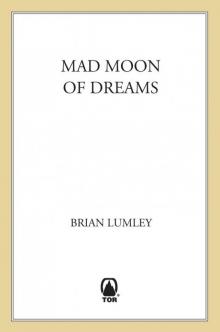 Mad Moon of Dreams
Mad Moon of Dreams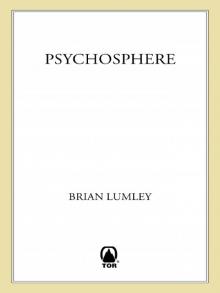 Psychosphere
Psychosphere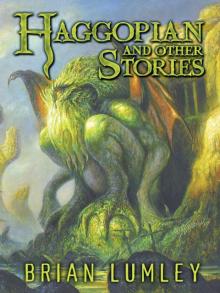 Haggopian and Other Stories
Haggopian and Other Stories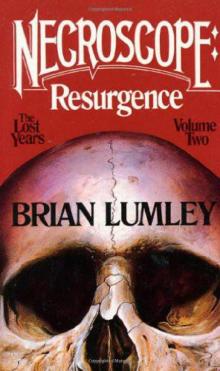 Resurgence_The Lost Years_Volume Two
Resurgence_The Lost Years_Volume Two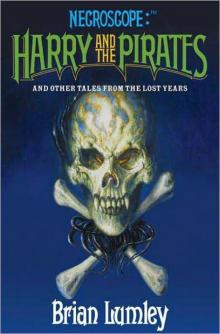 Necroscope: Harry and the Pirates: And Other Tales From the Lost Years
Necroscope: Harry and the Pirates: And Other Tales From the Lost Years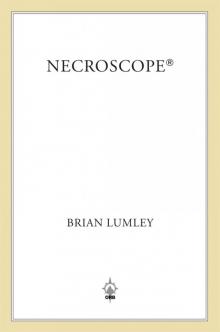 Necroscope®
Necroscope®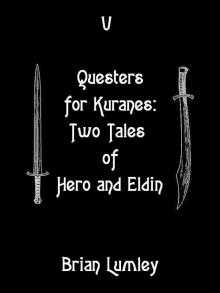 Dreamlands 5: Questers for Kuranes: Two Tales of Hero and Eldin
Dreamlands 5: Questers for Kuranes: Two Tales of Hero and Eldin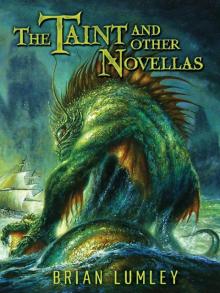 The Taint and Other Novellas: Best Mythos Tales Volume 1
The Taint and Other Novellas: Best Mythos Tales Volume 1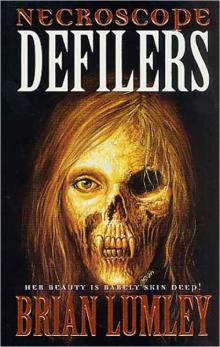 Necroscope: Defilers
Necroscope: Defilers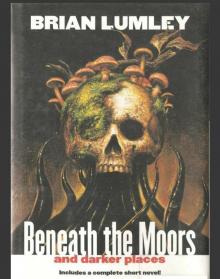 Beneath the Moors and Darker Places
Beneath the Moors and Darker Places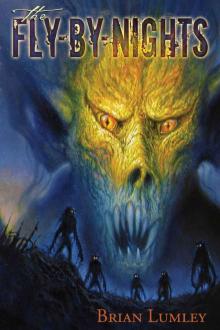 The Fly-By-Nights
The Fly-By-Nights Khai of Khem
Khai of Khem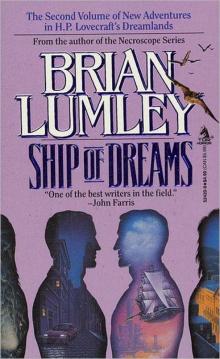 Ship of Dreams
Ship of Dreams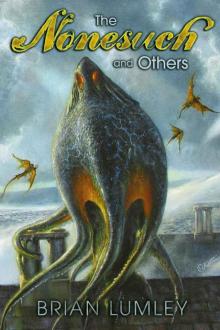 The Nonesuch and Others
The Nonesuch and Others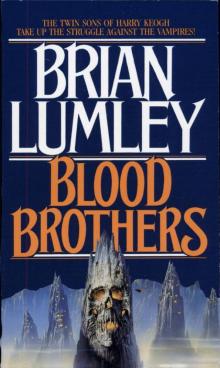 Blood Brothers
Blood Brothers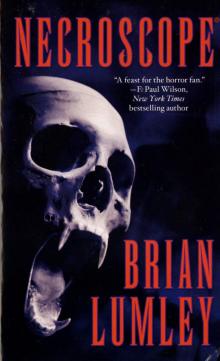 Necroscope
Necroscope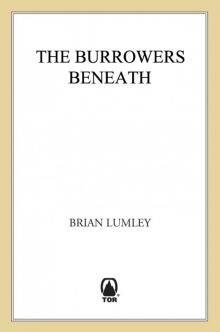 The Burrowers Beneath
The Burrowers Beneath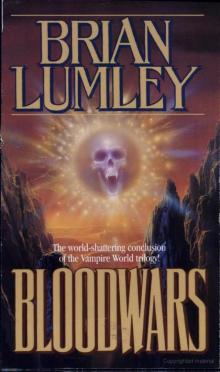 Bloodwars
Bloodwars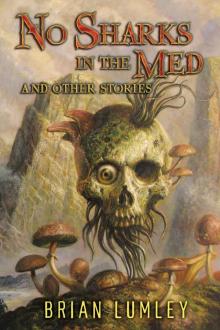 No Sharks in the Med and Other Stories
No Sharks in the Med and Other Stories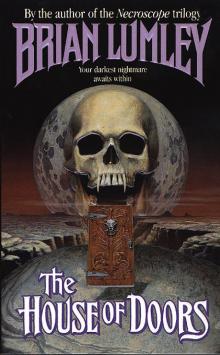 The House of Doors - 01
The House of Doors - 01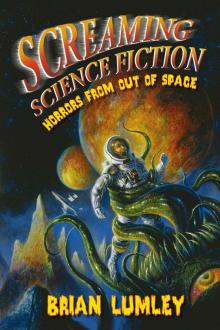 Screaming Science Fiction
Screaming Science Fiction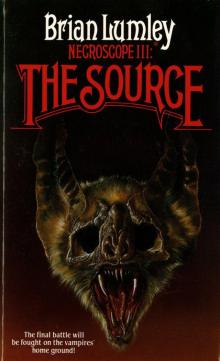 Necroscope III: The Source
Necroscope III: The Source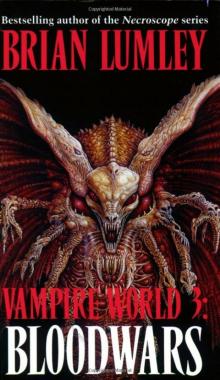 Vampire World I: Blood Brothers
Vampire World I: Blood Brothers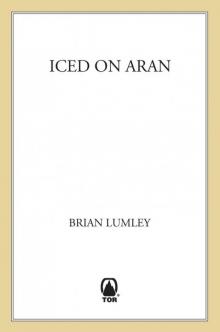 Iced on Aran
Iced on Aran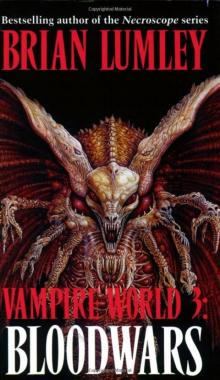 Necroscope: Invaders
Necroscope: Invaders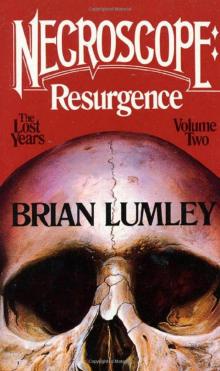 Necroscope: The Lost Years
Necroscope: The Lost Years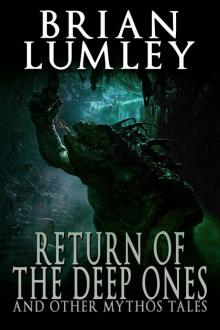 Return of the Deep Ones: And Other Mythos Tales
Return of the Deep Ones: And Other Mythos Tales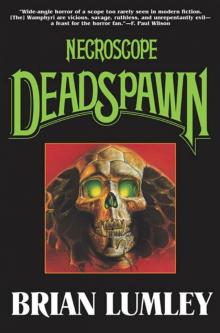 Necroscope V: Deadspawn
Necroscope V: Deadspawn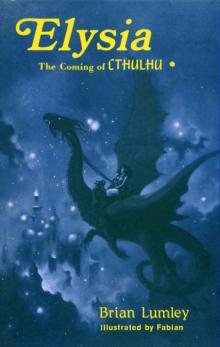 Titus Crow, Volume 3: In the Moons of Borea, Elysia
Titus Crow, Volume 3: In the Moons of Borea, Elysia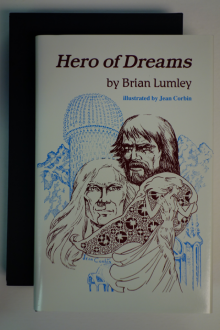 Hero of Dreams
Hero of Dreams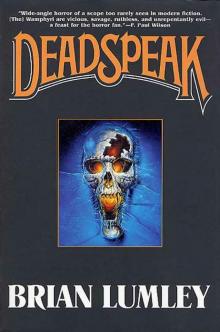 Necroscope IV: Deadspeak
Necroscope IV: Deadspeak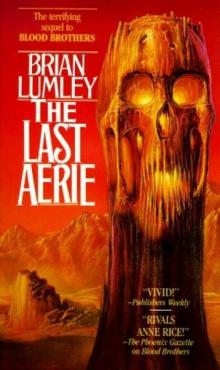 The Last Aerie
The Last Aerie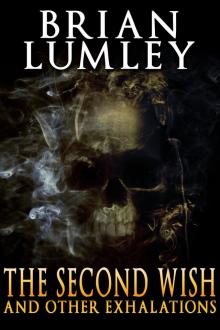 The Second Wish and Other Exhalations
The Second Wish and Other Exhalations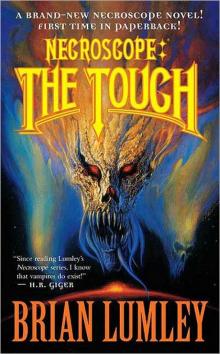 Necroscope: The Touch
Necroscope: The Touch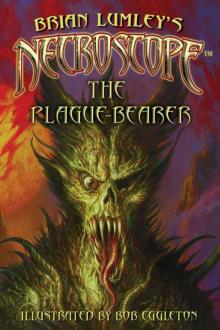 Necroscope: The Plague-Bearer
Necroscope: The Plague-Bearer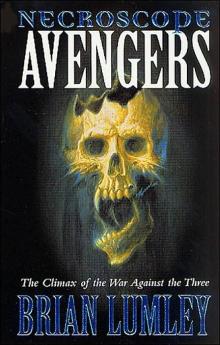 Necroscope: Avengers
Necroscope: Avengers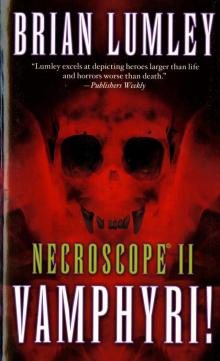 Necroscope II: Wamphyri
Necroscope II: Wamphyri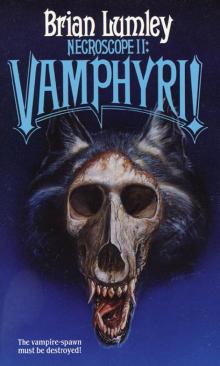 Necroscope II_Vamphyri!
Necroscope II_Vamphyri!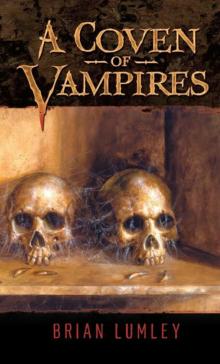 A Coven of Vampires
A Coven of Vampires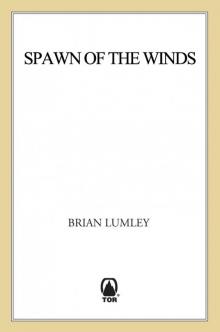 Spawn of the Winds
Spawn of the Winds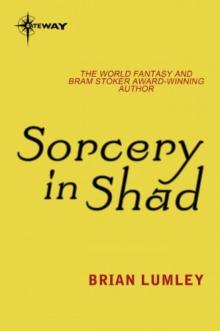 Sorcery in Shad
Sorcery in Shad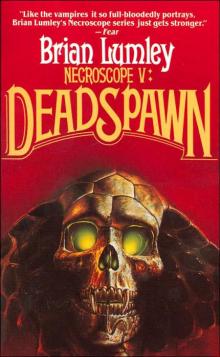 Deadspawn
Deadspawn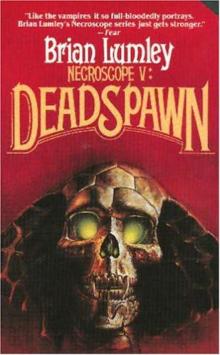 Necroscope V: Deadspawn n-5
Necroscope V: Deadspawn n-5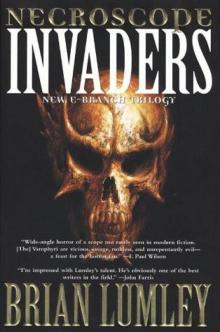 Necroscope: Invaders e-1
Necroscope: Invaders e-1![Beneath the Moors and Darker Places [SSC] Read online](http://i1.bookreadfree.com/i/03/20/beneath_the_moors_and_darker_places_ssc_preview.jpg) Beneath the Moors and Darker Places [SSC]
Beneath the Moors and Darker Places [SSC]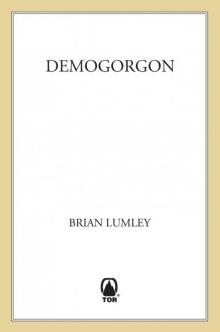 Demogorgon
Demogorgon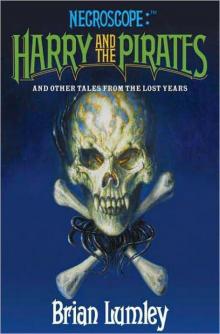 Harry and the Pirates_and Other Tales from the Lost Years
Harry and the Pirates_and Other Tales from the Lost Years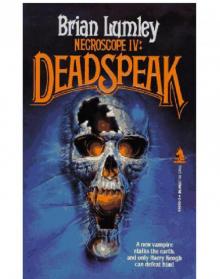 Necroscope IV: Deadspeak n-4
Necroscope IV: Deadspeak n-4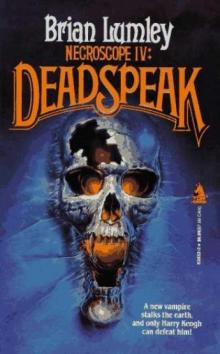 Deadspeak
Deadspeak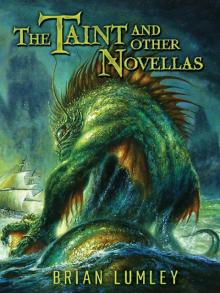 The Taint and Other Novellas
The Taint and Other Novellas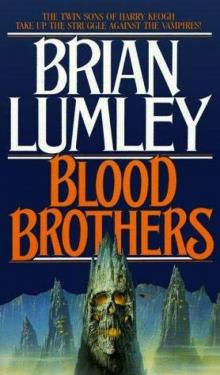 Blood Brothers vw-1
Blood Brothers vw-1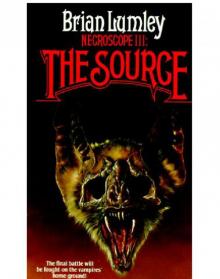 The Source n-3
The Source n-3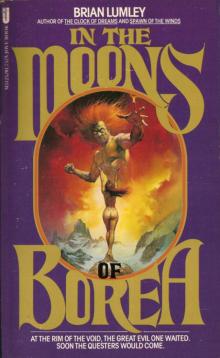 In the Moons of Borea
In the Moons of Borea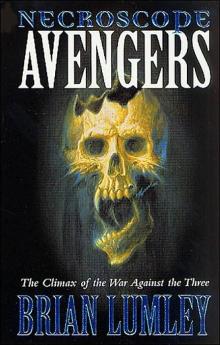 Avengers
Avengers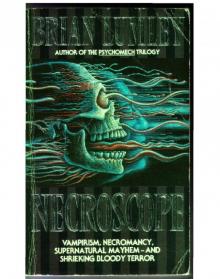 Necroscope n-1
Necroscope n-1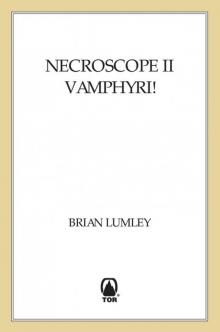 Vamphyri!
Vamphyri!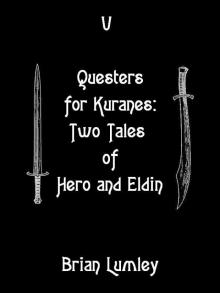 Questers for Kuranes: Two Tales of Hero and Eldin
Questers for Kuranes: Two Tales of Hero and Eldin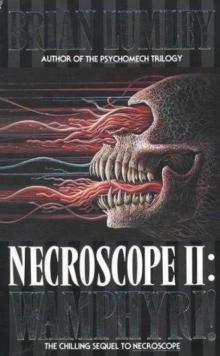 Necroscope II: Wamphyri! n-2
Necroscope II: Wamphyri! n-2 The Source
The Source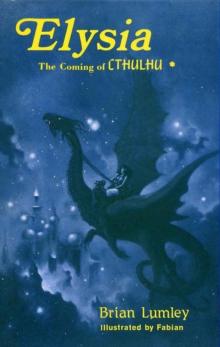 Elysia
Elysia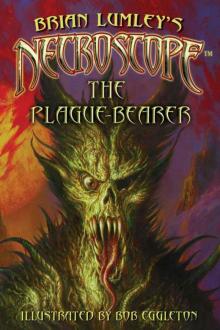 The Plague-Bearer
The Plague-Bearer The Touch
The Touch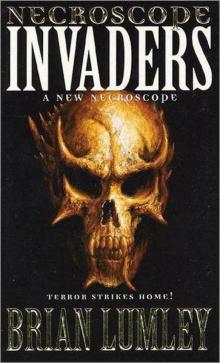 Invaders
Invaders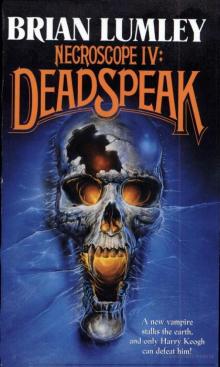 Necroscope 4: Deadspeak
Necroscope 4: Deadspeak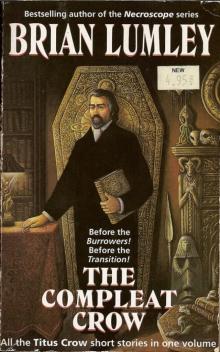 Compleat Crow
Compleat Crow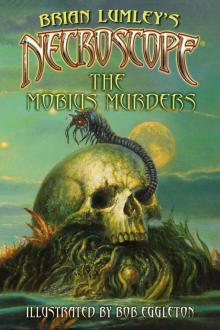 The Mobius Murders
The Mobius Murders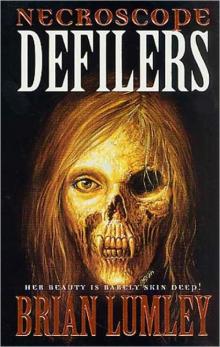 Defilers
Defilers